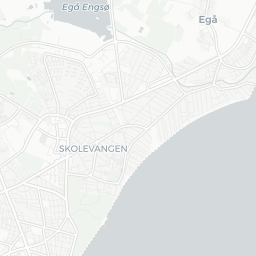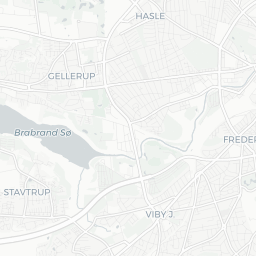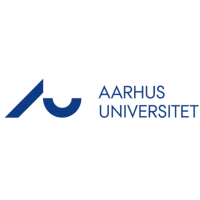Postdoctoral position in Social Systems Modelling at the Social Resilience Lab as part of the Computational Culture and Complexity Research collective
Aarhus Universitet (AU)
The Computational Culture and Complexity Research collective (CORE) and its Social Resilience Lab invite applications for a 28-month full time (37h/w) fixed-term postdoctoral position in Simulation and Modelling.
The position focuses on designing and implementing the agent-based modeling component of research projects in code, requiring proficiency in programming and simulation development. It is associated with two projects, EC2 and MELICA, but it will also involve working on other projects with a computational modelling component. The MELICA project studies the local implementation of Cold War civil defense through spatial analysis of different types of shelters in Aarhus, investigating how the shelters shaped urban space as well as testing the shelter system in a simulated emergency situation. EU Horizon project “European City: Computational Social Science Simulation For Democracy” (EC2) aims to develop robust governance frameworks for participatory democracy through computational social science methods such as simulation.
They will be expected to contribute to the setting up of a new research line focused on social simulation at the CORE collective within the Social Resilience Lab, thus working on various projects and supporting colleagues with their complex systems simulation expertise.
The successful applicant is expected to participate in the center’s activities whenever they relate to computational modelling (simulation), and systems architecture. This role is, therefore, best suited for candidates who can work autonomously and have a track record of working on projects requiring a level of scientific independence.
They will be supported by the PIs and work alongside a team of research engineers, social scientists and complexity science theoreticians as well as other members of the collective.
The appointment begins on the 1st of September 2025 or as soon as possible thereafter.
Place of employment: Aarhus University, Social Resilience Lab, a part of the Computational Culture and Complexity Research collective (CORE), Department of Culture, Cognition and Computation Jens Chr. Skous Vej 4, Aarhus, Denmark.
We acknowledge that imposter syndrome is a widespread phenomenon in academia, but it should not deter potential applicants from putting themselves forward for this role. Should you have any doubts or require further information, Dr. I. Romanowska (iromanowska@cas.au.dk) is available for informal discussions regarding the potential fit for the position.
In its pursuit of academic excellence, The Faculty of Arts is committed to creating an inclusive working environment and therefore encourages all qualified candidates to apply, regardless of personal background, gender, sexual orientation, age, disability, ethnicity etc. Members of the academic staff at the School of Culture and Society are expected to contribute to a vibrant, enjoyable and friendly work environment. We emphasise the importance of active participation in the daily life of the department.
The position
- The successful applicant will be expected to develop the social simulation strategy and methodology, this will include such tasks as
- collaborate with partners to operationalise and formalise the relevant social theories;
- develop and implement the simulation in computer code, either in one of the existing simulation platforms or in a general purpose programming language;
- develop experiment design strategy, handle of input, calibration and validation data and write data analysis pipelines to explore the simulation results;
- develop and maintain simulation documentation, including the simulation architecture (Simulation Spec, UML diagrams) and later, the model documentation (the ODD and TRACE protocols, etc);
- understand and apply data and code management standards and open science principles.
- The successful applicant will be expected to engage in standard scholarly activities, such as,
- present their research at international meetings;
- publish results in peerreviewed, international scientific journals;
- contribute to the organisation of research workshops and international conferences.
- The successful applicant will be expected to actively participate in the life of the Collective, engage with project partners and a wider academic community and continue their development as an internationally competitive researcher, by
- working independently on core research tasks while managing their workload and engagement across projects;
- contributing to the development of the collective’s simulation research line which includes seeking new opportunities and participating in new initiatives;
- contributing to other projects and collaborating with other members of the collective including across disciplines;
- participating in continuous professional development opportunities.
Support, both peer-support and mentoring, in terms of the technical and scholarly tasks as well as personal and professional development will be provided to ensure optimal conditions for a thriving professional period.
Teaching
The position will not involve any teaching.
Knowledge exchange
The successful applicant will be expected to exchange knowledge with various sectors of society and to contribute actively to public debate in areas related to the position.
Qualifications and the selection process
Applicants for this position must hold a PhD degree or equivalent qualifications in computational social sciences, mathematics, computer science, data science, digital humanities or any related field. Specialisation in computational modelling or complex systems architecture, and experience in social systems modelling, especially agent-based modelling are major advantages.
Applicants are asked to submit the following documents:
- a cover letter stating the relevant experience and projects and motivation for applying for the position [maximum three pages],
- a cv and a list of publications, which includes a link to their GitHub profile or similar,
- a maximum of two relevant publications. Please note that applications that lack publications submitted to the system cannot be considered even if publications are referenced elsewhere.
Applicants must document (essential):
- high level of skill and experience in at least one general-purpose programming language, such as Python, R or similar,
- familiarity with simulation epistemology and different methodologies,
- a successful completion of at least one academic project resulting in a publication,
- fluency in written and spoken English,
- evidence of team-playing skills, the ability to constructively collaborate, experience in interdisciplinary work and collegiality.
Applicants should highlight (highly preferred):
- Experience with and knowledge of an ABM simulation framework, e.g., NetLogo, Repast, AnyLogic or others,
- experience in conducting all stages of a simulation project,
- knowledge of UML or another system architecture framework,
Applicants should highlight (beneficial):
- an interest in urban mobility, social choice theory, participatory democracy and complex social systems,
- a working knowledge of HPC, LLMs, and data science as relevant to simulation projects,
- activity in an academic network relevant to the project goals,
- familiarity with open science standards as relevant for simulation studies.
The selection process will consist of the following steps:
- Initial Application Review: The submitted application packages will be evaluated to assess the candidates' academic qualifications, research experience, and relevant skills. As part of the review we ask candidates to provide a link to their GitHub and/or Hugging Face profile or submit recent examples of software scripts.
- Interview with Appointment Committee: Candidates will then meet with the appointment committee for an evaluation of their expertise and potential contributions to the School.
- Only candidates who pass the final stage will be asked to provide details of up to three referees for a reference check.
The research activities will be evaluated in relation to the actual research time. We therefore encourage applicants to specify any periods of leave they may have had without research activities (e.g. maternity/paternity leave), so we can subtract these periods from the span of their academic career when evaluating their productivity.
Please upload a maximum of two publications alongside your application.
Only submitted publications will be assessed; a list of publications is not sufficient. As a result, applications without submitted publications will not be assessed.
Professional references or recommendations should not be included. Applicants who are selected for an interview may be asked to provide professional references.
The application must be submitted in English
For further information about the position, please contact Iza Romanowska (iromanowska@cas.au.dk) or Head of department, Joshua Skewes (filjcs@cc.au.dk)
*For more information about the application and the employment procedure, please contact HR support Gerd Cecilie Bech Thomsen , e-mail gebeth@au.dk.
International applicants
International applicants are encouraged to check Family and work-life balance and Attractive working conditions for further information about the benefits of working at Aarhus University and in Denmark, including healthcare, paid holidays and, if relevant, maternity/paternity leave, childcare and schooling. Aarhus University offers a broad variety of services for international researchers and accompanying families, including a relocation service and career counselling for expat partners. For information about taxation, see Taxation aspects of international researchers’ employment by AU.
The work environment
This position will be based in the Social Resilience Lab, a part of the Computational Culture and Complexity Research Collective (CORE) - a dynamic interdisciplinary research group whose aim is to leverage computational methods to study social and cultural phenomena across a wide range of contexts from ancient societies, historical and literary case studies to modern societies. The team comes from disciplines as diverse as archaeology, language and literature, computer science, musicology and physics making it a highly stimulating radically interdisciplinary research environment.
Our members are encouraged to question, innovate and playfully explore and the center provides a strong peer-based and mentor-based support framework to encourage the scholarly evolution and career progression of all of our members.
The benefits of the position include:
- an opportunity to pursue visiondriven world-class research as part of a team;
- ample professional development opportunities including training in cuttingedge software and methodologies, familiarisation with robust management paradigms, and support in navigating the academic funding landscape;
- travel and training budget as well as access to worldclass infrastructure and equipment;
- a working environment that upholds values such as worklife balance, kindness, putting people over product, aiming to create an environment in which all of its members can thrive;
- high level of independence and authority over one’s tasks, timelines and processes.
- appointment will be in accordance with the collective labour agreement between the Danish Ministry of Taxation and the Danish Confederation of Professional Associations.
CORE values a healthy work-life-balance and offers work conditions where flexible hours and some amount of remote work is possible. We value the effect of meeting up in the hallways or at the coffee machine and having serendipitous conversations with colleagues. As a mixed group of nationalities, we predominantly speak English in the office and at meetings to be inclusive of our international colleagues. We have a center meeting every other Thursday and meet up every other Friday for our social activity “Friday Tea & Beer” – even though we also drink coffee.
Core consists of the following five centres:
- Centre for Humanities Computing https://chc.au.dk/
- Social Resilience Lab https://srl.au.dk/
- Centre for Digital Textual Heritage https://cas.au.dk/en/cdh
- Centre for Grundtvigforskning https://grundtvigcenteret.au.dk/
- TEXT DNRF Centre of Excellence https://arts.au.dk/en/text
The School of Culture and Society
The School of Culture and Society comprises strong academic environments within Anthropology, Archaeology & Heritage Studies, Philosophy & History of Ideas, Global Studies, History & Classical Studies, Culture, Cognition and Computation, the Study of Religion and Theology. The school provides education to undergraduate, graduate, and doctoral students, fostering a strong foundation in academic excellence, interdisciplinary perspectives, and critical thinking.
The School of Culture and Society is a dynamic research institution dedicated to the comprehensive study of cultural and social conditions. Our research explores the relationship between humanity and its environments, including nature, technology, and theology, spanning from prehistoric times to the present and encompassing both local and global perspectives. We aim to be a driving partner in collaborations which, across sectors and disciplines, contribute to research development and answer significant societal questions. In research and education, we work to actively put human and cultural science into action in relation to partners outside the university.
The School is committed to the following objectives:
- Fostering an international environment characterized by strong academic and interdisciplinary collaboration.
- Embracing an innovative and experimental approach to research, teaching, and communication.
- Cultivating a school that both generates knowledge and educates students for the present and future.
- Advancing a broad engagement with digital humanities.
- Upholding a strong commitment to both local and global societal challenges.
- Creating an inclusive, diverse, and sustainable workplace and organization.
Read more about the school here School of Culture and Society - Aarhus University
Qualification requirements
Applicants should hold a PhD or equivalent academic qualifications.
Formalities
The Faculty of Arts refers to the Ministerial Order on the Appointment of Academic Staff at Danish Universities (the Appointment Order).
- Appointments shall be in accordance with the collective labour agreement between the Danish Ministry of Taxation and the Danish Confederation of Professional Associations.
- Further information on qualification requirements and job content may be found in the Memorandum on Job Structure for Academic Staff at Danish Universities.
- Further information on the application and supplementary materials may be found in Application Guidelines.
- The application must outline the applicant's motivation for applying for the position, attaching a curriculum vitae, a teaching portfolio, a complete list of published works, copies of degree certificates and examples of academic production (mandatory, but no more than two examples). Please upload this material electronically along with your application.
Aarhus University also offers a junior researcher development programme targeted at career development for postdocs at AU. You can read more about it here: https://talent.au.dk/junior-researcher-development-programme/
If nothing else is noted, applications must be submitted in English. The application deadline is at 11.59 pm Danish time (same as Central European Time) on the deadline day.Aarhus University’s ambition is to be an attractive and inspiring workplace for all and to foster a culture in which each individual has opportunities to thrive, achieve and develop. We view equality and diversity as assets, and we welcome all applicants.
Shortlists may be prepared with the candidates that have been selected for a detailed academic assessment. A committee set up by the head of school is responsible for selecting the most qualified candidates. See this link for further information about shortlisting at the Faculty of Arts:shortlisting
Faculty of Arts
The Faculty of Arts is one of five main academic areas at Aarhus University.
The faculty contributes to Aarhus University's research, talent development, knowledge exchange and degree programmes.
With its 700 academic staff members, 200 PhD students, 9,000 BA and MA students, and 1,500 students following continuing/further education programmes, the faculty constitutes a strong and diverse research and teaching environment.
The Faculty of Arts consists of the School of Communication and Culture, the School of Culture and Society and the Danish School of Education. Each of these units has strong academic environments and forms the basis for interdisciplinary research and education.
The faculty's academic environments and degree programmes engage in international collaboration and share the common goal of contributing to the development of knowledge, welfare and culture in interaction withsociety.
Read more at arts.au.dk/en
The application must be submitted via Aarhus University’s recruitment system, which can be accessed under the job advertisement on Aarhus University's website.
Aarhus University
Aarhus University is an academically diverse and research-intensive university with a strong commitment to high-quality research and education and the development of society nationally and globally. The university offers an inspiring research and teaching environment to its 38,000 students (FTEs) and 8,300 employees, and has an annual revenues of EUR 935 million. Learn more at www.international.au.dk/
Department: Social Resilience Lab/Social Resilience Lab
Deadline: 25 April 2025
Location: Aarhus C Jens Chr. Skous Vej 4
Opslaget er indhentet automatisk fra virksomhedens jobsider og vises derfor kun som uddrag. Log ind for at se det fulde opslag eller gå videre til opslaget her:

















